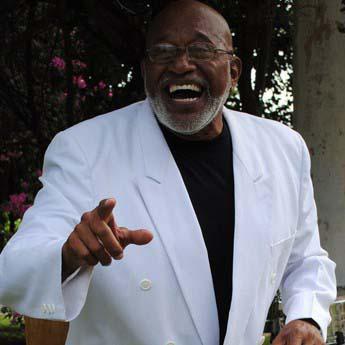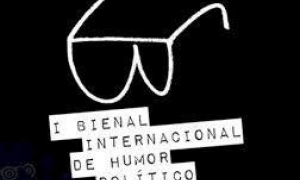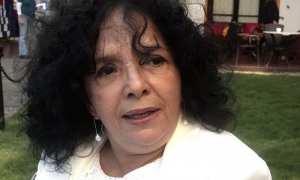
Benny Moré continues to be the greatest representative of Cuban music: he symbolizes the guateque campesino, the descarga, bohemia, the café, the bar, the cabaret, the theater, the spectacle. He is the greatest singer, composer, arranger and conductor. He learned through observation, but with great skill. He is the “Wildman of Rhythm”, a legend, a myth.
There are still several members (musicians and chorus members) of Benny Moré’s Banda Gigante (Giant Band) in Cuba, one of whom is Lázaro Valdés, his last pianist and the great performer of “Santa Isabel de las Lajas”.
Valdés was part of the Banda Gigante from 1958 - 1963, and is a highly educated musician, conductor, composer, arranger, and music and folklore researcher.
He was born in the Cayo Hueso neighborhood of Havana, where many of the Valdés dynasty started out (Oscar, singer and percussionist of the band Irakere, Alfredito, Vicentico, Marcelino, Lázaro Oscar and Lazarito, director of the band Bamboleo).
On what would have been Benny Moré’s 96th birthday, Granma International visited Lázaro Oscar Valdés at his home on Subirana Street, between Clavel and Santa Marta, beside where Abelardo Barroso and Benny Moré (two of Cuba’s greatest singers) also lived. The house is situated in the Pueblo Nuevo neighborhood, in La Victoria, a very popular area of the city during the 1950s. We look through a photo album, in which he shows me images of his times with Benny Moré’s Banda Gigante, offering an opportunity to learn more about the mysteries of the musician from Lajas.
What was Benny like in rehearsals, recordings and performances?
In preparing his recordings, he decided everything, with the support of his arranger. He could masterfully dictate arrangements, with chords and everything, he knew what he wanted. During public performances, he would change everything in the middle of the act. The exciting atmosphere he created could not be matched by anyone else in the world. He approached the ear of the musicians, the pianist, the rhythmic base and the band was something else. As a singer he had a finely tuned ear, I assure you. Only a supernatural genius like Benny could do all that.
Did you travel with Benny?
We went in 1960 to perform in Miami, he wouldn’t accept being put up in another hotel, away from the musicians.
What can you tell me about Benny as a person?
He adored his mother who attended his performances, he built her a house just as he promised. He lent money to his musicians and didn’t collect it. His performances were very precise.
What do you recall of his final performances?
The concert at the last “Festival Papel y Tinta” in 1963, in front of the Capitolio was amazing, the biggest in Cuba. The performances in the Salón Mambí, in the Tropicana parking lot, were legendary.
Now, let’s talk about Lázaro Valdés
I was born on December 17, 1940, I lived with my father in Mexico in 1946, where he played with conductor José Sabre Marroquín, who became music director to Lucho Gatica. There I met Benny, he had left the Matamoros ensemble and stayed in the city, where he recorded with Pérez Prado. I lived that great moment in Cuban music in Mexico. Back in Havana, in 1958, trombonist Generoso Jiménez recommended me for the Banda Gigante. I should clarify that Benny had two bands: one from 1953 and another in 1958.
How would you rate Benny’s musical standing?
I was always impressed with his vocal tonality, his rhythm, in that he was a star. He mastered the clave and the rhythm, these possibilities, his experience and genius, were enough for him to lead Cuba's most famous band. He was a great musician and an excellent singer, very Cuban. He had what he needed to have.
What did you do when Benny passed away?
Lázaro Peña, president of the Cuban Workers’ Federation (CTC), asked us to continue with the band, I was appointed conductor.
Did you conduct other orchestras?
Sabor de Cuba, after the departure of Bebo Valdés. We worked at the Teatro Martí with the Pous y Sanabria comic theatre company. At that stage I wrote music for Enrique Núñez Rodríguez’s librettos, a difficult task.
What did you do in cabaret?
At the Cabaret Parisién I worked with a show that was performed in Martinique and México.
Let’s go back in time, tell me how you trained musically.
Beginning at the age of 8, I studied with various teachers and at the Marianao Conservatory. Afterwards, I completed my higher education under Rosario Franco. Rosario studied with Claudio Arrán and was the daughter of researcher José Luciano. I played in the Ilusión orchestra.
Tell me about your father Oscar.
Papá Oscar was the best conga player in Cuba, he played in the Orquesta de Música Moderna and Irakere. Dad was a singer and percussionist. He was with Cheo Marquetti, Julio Cuevas, Septeto Cauto, Julio Gutiérrez, Mario Romeu and worked for Gaspar Pumarejo on TV.
What do you do now?
I lead the Son-Jazz group, a fusion of Cuban, African and jazz (music).
Have you published your research?
I published a book on the origins and roots of son, which was released in Mexico and Panama.
What do you think of your son Lazarito, director of Bamboleo?
He is well on the right track, Bamboleo is one of the most successful Cuban salsa bands, his composition “Ya no hace falta” is one of the biggest hits of the Salsa boom of the 1990s.
How is Cuban music doing?
We instrumentalists of today play different musical styles, but I advise new musicians that as long as they don’t master authentic and genuine Cuban music (that of the tumbaos and the montunos), they can not be considered real Cuban musicians; and it is very unfortunate when a Cuban musician doesn’t know or understand our great national music, which is admired and appreciated by the world. That is all.






